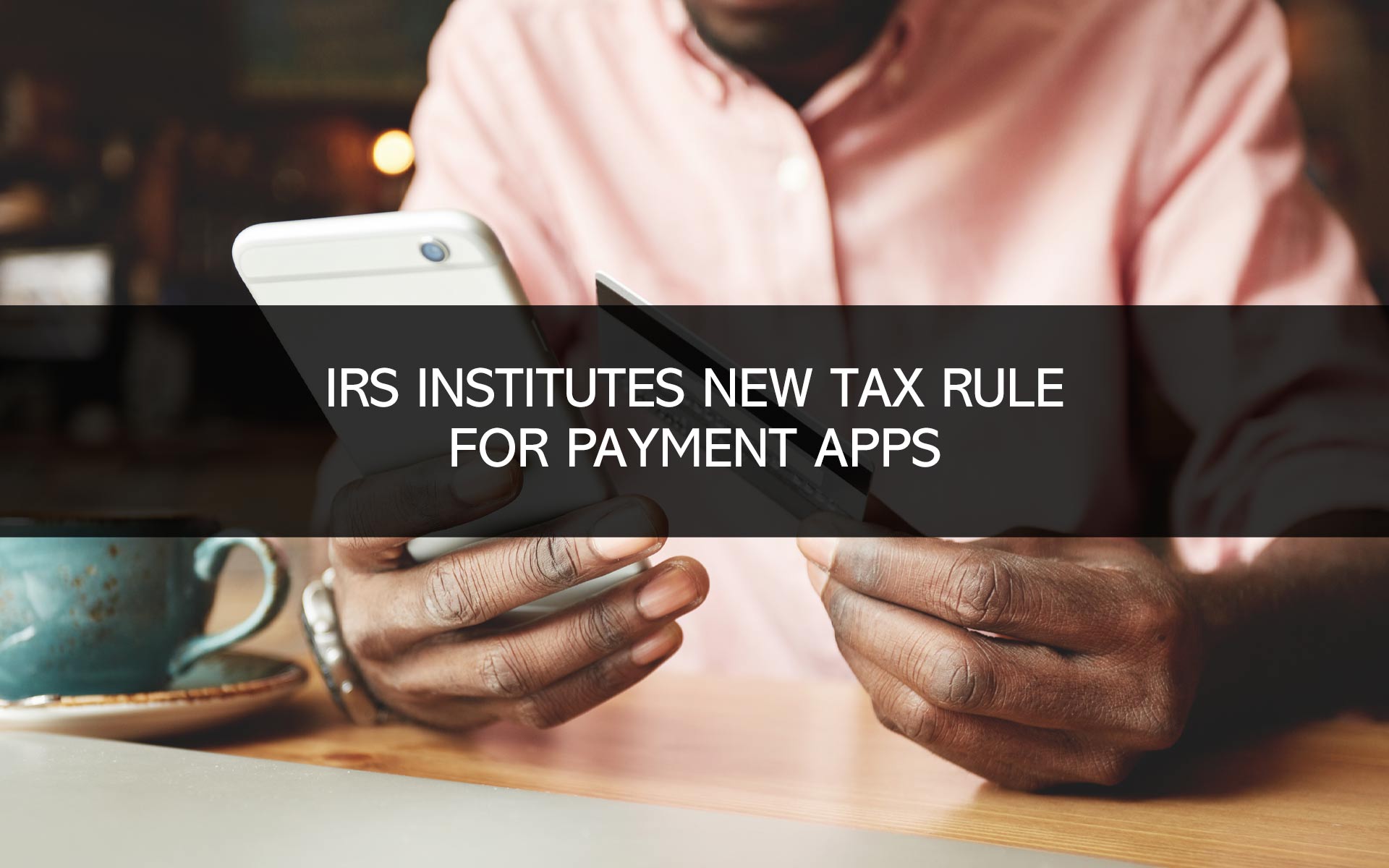IRS Digital Income Tax Rule: A Game-Changer For Modern Taxpayers
Listen up, folks! If you’ve been keeping an eye on the world of taxes, you’ve probably heard about the IRS digital income tax rule. It’s not just another update—it’s a massive shift in how we handle our finances with Uncle Sam. This rule is designed to streamline the process, making it easier for everyone to report their income accurately. But is it as simple as it sounds? Let’s dive in and find out!
The IRS digital income tax rule has been buzzing around the financial world for a while now. It’s like a new chapter in the tax handbook, one that’s meant to modernize the way we deal with taxes. With more people earning income online, this rule aims to capture all those digital streams and ensure they’re reported properly.
Now, before we get too deep into the nitty-gritty, let’s talk about why this matters. Whether you’re a freelancer, an influencer, or someone who dabbles in crypto, this rule is going to affect you. It’s not just about filling out a form anymore; it’s about understanding the rules and staying compliant. So, buckle up because we’re about to break it all down for you!
- Telugu Movierulz 2023 The Ultimate Guide To Exploring The Latest Movie Scene
- Movierulz In 2025 The Ultimate Guide To Understanding Its Impact And Evolution
What Exactly is the IRS Digital Income Tax Rule?
Alright, let’s get down to business. The IRS digital income tax rule is essentially a set of guidelines that require third-party payment processors to report all transactions over $600. Yeah, you read that right—$600. This means if you’re using platforms like PayPal, Venmo, or even cryptocurrency exchanges, every transaction above this amount needs to be reported to the IRS.
This rule was introduced to close the tax gap, which is the difference between what taxpayers owe and what they actually pay. The IRS estimates this gap to be around $600 billion annually, and they’re hoping this new rule will help bridge that gap. It’s a bold move, but one that’s necessary in today’s digital economy.
Who Does This Rule Affect?
Here’s the deal: if you’re earning money online, this rule affects you. Whether you’re selling goods on Etsy, driving for Uber, or trading crypto, you’re now under the IRS’s watchful eye. Here’s a quick list of who’s impacted:
- 5movierulz2025 Your Ultimate Guide To Streaming Movies In 2025
- Unlock The Magic Of Vegamovies Ms Ndash Your Ultimate Movie Destination
- Freelancers and independent contractors
- Gig economy workers
- Influencers and content creators
- Online sellers
- Crypto traders
So, if you fall into any of these categories, it’s time to pay attention. The IRS isn’t messing around with this one.
Why Was the IRS Digital Income Tax Rule Introduced?
Let’s be real, the IRS didn’t just wake up one day and decide to create this rule for fun. There’s a method to their madness. The main reason behind this rule is to tackle the growing issue of underreported income. With the rise of the gig economy and digital platforms, more people are earning money in ways that aren’t easily tracked by traditional tax systems.
According to a report by the Tax Policy Center, around 17% of taxpayers underreport their income. That’s a lot of money slipping through the cracks. The IRS digital income tax rule is their way of tightening the screws and ensuring everyone pays their fair share.
How Does This Rule Work?
Now that we know why the rule exists, let’s talk about how it works. Essentially, payment processors like PayPal and Venmo are required to issue 1099-K forms to users who exceed the $600 threshold. These forms detail all the transactions made through their platforms, which are then reported to the IRS.
Here’s a breakdown of the process:
- Payment processors track all transactions above $600.
- At the end of the year, they issue 1099-K forms to users.
- Users include this information when filing their taxes.
It’s a pretty straightforward process, but it does add an extra layer of responsibility for taxpayers.
Understanding the Impact of the IRS Digital Income Tax Rule
Now that we’ve covered the basics, let’s talk about the impact. This rule isn’t just a minor tweak—it’s a game-changer for many people. For one, it means more transparency in the tax system. But it also means more accountability for taxpayers.
On the flip side, there are concerns about privacy and the potential for increased audits. Some people worry that this rule might lead to unnecessary scrutiny from the IRS. It’s a valid concern, but one that needs to be balanced with the benefits of a more accurate tax system.
Benefits of the IRS Digital Income Tax Rule
Let’s focus on the positives for a moment. Here are some benefits of the IRS digital income tax rule:
- Increased transparency in the tax system
- Fairer distribution of tax burdens
- Improved accuracy in reporting income
These benefits are crucial in maintaining a fair and equitable tax system. While it might seem like extra work, it’s ultimately for the greater good.
Challenges Faced by Taxpayers
Of course, with any new rule, there are challenges. One of the biggest concerns is the potential for increased audits. With more data being reported, the IRS has more ammunition to go after taxpayers who might be underreporting their income.
Another challenge is the complexity of the rule itself. For those who aren’t familiar with tax terminology, navigating the 1099-K forms and understanding what needs to be reported can be overwhelming. This is where having a good tax advisor comes in handy.
Tips for Staying Compliant
So, how do you stay on the right side of the IRS? Here are a few tips:
- Keep detailed records of all your transactions.
- Consult with a tax professional if you’re unsure about anything.
- Use tax software to help you organize your information.
By taking these steps, you can ensure that you’re fully compliant with the IRS digital income tax rule.
How to Prepare for the IRS Digital Income Tax Rule
Preparation is key when it comes to taxes. If you’re affected by this rule, there are a few things you can do to get ready. First, start by reviewing your financial records from the past year. Make sure you have a clear picture of all your income sources.
Next, familiarize yourself with the 1099-K form. Understand what information is required and how it affects your tax return. Lastly, consider investing in tax software or consulting with a tax professional. These tools can make the process much smoother.
Common Mistakes to Avoid
Let’s talk about some common mistakes people make when dealing with the IRS digital income tax rule:
- Not keeping accurate records
- Ignoring 1099-K forms
- Underreporting income
Avoiding these mistakes can save you a lot of headaches down the road. Remember, the IRS is watching, so it’s best to stay on top of things.
Resources for Further Information
If you want to learn more about the IRS digital income tax rule, there are plenty of resources available. The IRS website is a great place to start. They have detailed information on the rule and how it affects taxpayers.
Additionally, there are numerous tax professionals and advisors who specialize in this area. Don’t hesitate to reach out if you need help. Knowledge is power, and the more you know, the better prepared you’ll be.
Final Thoughts on the IRS Digital Income Tax Rule
In conclusion, the IRS digital income tax rule is a significant development in the world of taxes. It’s designed to modernize the system and ensure everyone pays their fair share. While it might seem daunting at first, with the right preparation and resources, you can navigate it successfully.
So, what’s next? Take action! Review your financial records, consult with a tax professional, and stay informed. The IRS isn’t going to make this easy, but with a little effort, you can stay compliant and stress-free.
Call to Action
Before you go, we’d love to hear your thoughts. Have you been affected by the IRS digital income tax rule? What challenges are you facing? Share your experiences in the comments below and don’t forget to share this article with your friends and family. Knowledge is power, and the more we share, the better prepared we all are!
And hey, if you’re looking for more insights on taxes and finance, stick around. We’ve got plenty more content to help you navigate the complexities of the modern financial world. Stay tuned and stay informed!
Table of Contents
- What Exactly is the IRS Digital Income Tax Rule?
- Who Does This Rule Affect?
- Why Was the IRS Digital Income Tax Rule Introduced?
- How Does This Rule Work?
- Understanding the Impact of the IRS Digital Income Tax Rule
- Benefits of the IRS Digital Income Tax Rule
- Challenges Faced by Taxpayers
- Tips for Staying Compliant
- How to Prepare for the IRS Digital Income Tax Rule
- Common Mistakes to Avoid



Detail Author:
- Name : Bonita Lebsack
- Username : nglover
- Email : kunde.mariam@bogan.com
- Birthdate : 1978-07-27
- Address : 55293 Satterfield Tunnel Mireyafurt, MS 11535
- Phone : 308.839.2031
- Company : McClure-Homenick
- Job : Funeral Director
- Bio : Non et est consectetur aut. Et enim quis temporibus rerum ipsa. Quo rerum excepturi numquam reiciendis dolor. Sunt similique fuga error est ut in.
Socials
linkedin:
- url : https://linkedin.com/in/vernaherman
- username : vernaherman
- bio : Facilis est sit voluptatem id iure.
- followers : 6378
- following : 1142
instagram:
- url : https://instagram.com/verna_real
- username : verna_real
- bio : Quam omnis nihil beatae. Facere rerum ea sunt sequi animi. Et vero impedit quo accusamus.
- followers : 2561
- following : 234